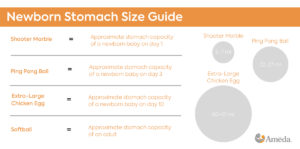Q: What actually happens after you give birth? Everyone just says, good luck not sleeping. But what does life really look like with newborns in the first month? What should I expect from my healing body and newborns body?
– New Mama
A: Hey mama, thanks for the question. The short answer is that every mom/baby are different. I know, that’s not very helpful. But what’s important is that you don’t compare your situation with others. I’m sure you’re already practicing this skill as pregnancy itself invites all sorts of well-meaning comments from friends, family, and even strangers. This pregnancy is a unique experience just as your labor and “fourth trimester” will be unique.
 The fourth trimester is a strange term, but you will quickly learn why it’s considered really the last part of pregnancy for your little one. Encompassing the first three months after birth, it describes the process of a newborn adapting to life on the outside. Going from dark to light, confined space to wide open spaces, smelling and eating for the first time, hearing sound differently – all of these sudden and drastic changes are confusing! What really helped me in those first few weeks was to remember this and approach his care with the goal of helping him through these changes. It’s hard to do when you have a crying newborn in the car, or during a diaper change, but every moment is a new opportunity to try again.
The fourth trimester is a strange term, but you will quickly learn why it’s considered really the last part of pregnancy for your little one. Encompassing the first three months after birth, it describes the process of a newborn adapting to life on the outside. Going from dark to light, confined space to wide open spaces, smelling and eating for the first time, hearing sound differently – all of these sudden and drastic changes are confusing! What really helped me in those first few weeks was to remember this and approach his care with the goal of helping him through these changes. It’s hard to do when you have a crying newborn in the car, or during a diaper change, but every moment is a new opportunity to try again.
Sleeping, eating, and diaper changes make up the bulk of that first month. As mundane as that seems, those are great opportunities to bond with your new baby. I spent a lot of time just staring at my son that first month, especially when he was eating or sleeping. Diapers proved to be a bit challenging at first, as most babies go through a period of time where they don’t tolerate the process well. If you think about it, they really aren’t used to being “man-handled” like that. Everything from the feeling of a cold wipe to having their legs thrust into the air is a new sensation – and it’s not exactly pleasant. I tried going super fast, but what ultimately helped was to go slowly a la Janet Lansbury, talking him through each step of the process. Eventually he began to calm down during changes, and within a couple of weeks we had very little trouble.
 Newborns eat often because their stomachs are so tiny. So yes, sleep will be compromised. If you can, try to nap during the day as well when the baby is sleeping so you’re not going into the evening without any sleep in the tank. Generally, you’ll be feeding the baby every 2-3 hours. You may have a baby that loves to sleep and goes for longer stretches, or you may not. It’s best not to have expectations other than that. And just because your friend’s baby sleeps for 5 hours doesn’t mean yours will – or should. Babies need to eat! Going without for several long stretches can lead to poor weight gain. If you plan to breastfeed, feeding your baby whenever he’s hungry will ensure you have good supply. As your baby grows, he’ll be able to sleep for longer periods of time.
Newborns eat often because their stomachs are so tiny. So yes, sleep will be compromised. If you can, try to nap during the day as well when the baby is sleeping so you’re not going into the evening without any sleep in the tank. Generally, you’ll be feeding the baby every 2-3 hours. You may have a baby that loves to sleep and goes for longer stretches, or you may not. It’s best not to have expectations other than that. And just because your friend’s baby sleeps for 5 hours doesn’t mean yours will – or should. Babies need to eat! Going without for several long stretches can lead to poor weight gain. If you plan to breastfeed, feeding your baby whenever he’s hungry will ensure you have good supply. As your baby grows, he’ll be able to sleep for longer periods of time.
To maximize the amount of sleep you get, follow the AAP recommendation of co-sleeping. Co-sleeping simply means that you are sharing a room with your baby, but there are many ways to accomplish this. A bassinet, side-car bassinet
, or in-bed sleeper
will make those middle of the night feedings a lot less work. Plus, it reduces the risk of SIDS by as much as 50%. Rooming in with baby is not only the best way to catch those zzzs, but it’s also the safest way to sleep. That’s what you call a win-win!
Just like babies are adapting to their new life, so are you. The immediate postpartum period has its own challenges for new mamas, as you heal from labor and delivery. Again it’s important not to compare yourself with others. Everyone’s body is different and heals in its own time. You may be sore, dealing with stitches, or even EEK! hemorrhoids. Sitz baths are highly recommended for easing pain and encouraging healing
. Maybe you had a cesarean birth, and you’re recovering
from major abdominal surgery. Listen to your health care provider’s recommendations, especially when it comes to activity level and pain medication. Sleep deprivation on top of pain is not a good combination. Don’t be tempted to “tough it out.” You’ll be spending a lot of time sitting, to be honest, and you’ll want to be as comfortable as possible.
It’s easy to focus on the downstairs, but don’t forget that your breasts will be changing too. As your milk comes in, you may experience engorgement. Be sure to have some soft, breathable bras and nursing tanks
to wear while your supply and size regulate. Breastfeeding should be a pleasurable experience, but it takes some getting used to. A little soreness at first is normal. If you’re having pain that’s intolerable or seems to escalate, don’t hesitate to contact a Homegrown’s lactation educator or a lactation consultant. We saw one in the first 48 hours just to be sure everything looked ok!
Your newborn is also dealing with the hard work of labor (yes, they work too!) and getting all of their systems up and running. Babies can be very sleepy at first as they recover from the main event. In the first few days so many changes are happening in their little bodies. I remember being so shocked when each poopy diaper I changed seemed to be a completely different color – a sign his digestive system was firing up (pun intended). Pay attention to how often you’re seeing wet and dirty diapers, as this will be a good indicator of how well your baby is eating. In the first couple of weeks, the umbilical cord stump will fall off, and the belly button will heal. You’ll want to give it plenty of air and avoid submersion in a tub (sponge baths are fine) until this happens.
Overall, our best advice for handling that first month and beyond is to practice patience – with yourself as you heal from labor and with your new baby as he/she adjusts to the world outside.
For more tips to handle the fourth trimester, check out our Pinterest board!
Do you have a burning question that you haven’t had a chance to ask a care provider or are maybe too embarrassed to ask? We’ve got your back! The 411 is like a “dear doula” column where you get to (anonymously) ask about all those things you think you’re alone in wondering, or that you might be struggling with. We’re here to affirm that no, you are not alone. With evidence-based answers from not only birth doulas, but childbirth educators, experienced moms, lactation educators and more, we’ll help save you from falling down the Google rabbit hole. We wanna know what’s on your mind! Submit your question online.


